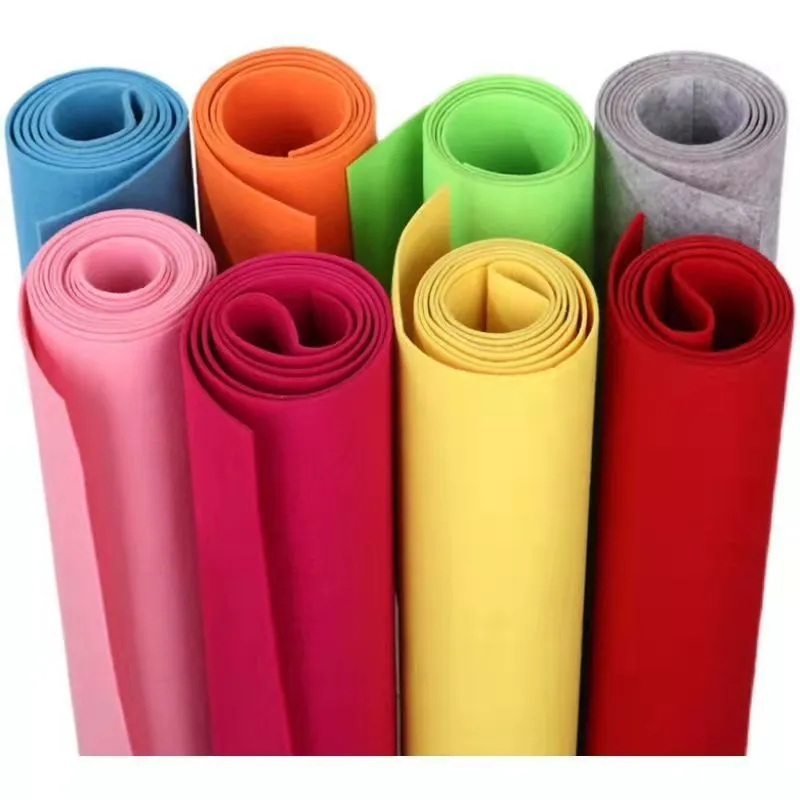industrial felt manufacturers
Understanding Industrial Felt Manufacturers A Comprehensive Overview
Industrial felt is a versatile material used across various industries for its unique properties such as durability, compressibility, and thermal insulation. The manufacturing of industrial felt is a specialized process that plays a crucial role in producing high-quality products tailored to specific industrial needs. This article delves into the nature of industrial felt manufacturers, their production processes, applications, and the factors influencing their market.
What is Industrial Felt?
Industrial felt is a non-woven fabric composed of natural or synthetic fibers that are mechanically or chemically processed to create a dense, sturdy material. The primary fibers used in the production of industrial felt include wool, polyester, nylon, and polypropylene. The resulting product exhibits several characteristics that make it ideal for various applications, including sound absorption, insulation, cushioning, and filtration.
Production Process of Industrial Felt
The manufacturing process of industrial felt can be broken down into several key steps
1. Fiber Selection The choice of fiber is crucial as it determines the felt's properties. Natural fibers like wool offer exceptional insulation and moisture-wicking capabilities, while synthetic fibers provide enhanced durability and resistance to chemicals.
2. Needle Punching This is the most common method used to manufacture industrial felt. In this process, a series of barbed needles punch through the layered fibers, entangling them to create a cohesive mat. This method is favored for producing thicker and denser felts suitable for heavy-duty applications.
3. Wet Felting This traditional technique involves using moisture, heat, and agitation to interlock the fibers. Wet felting is often used for creating softer and more flexible felts, which are ideal for applications that require a softer touch.
4. Finishing Once the felt is formed, it undergoes various finishing processes, including dyeing and coating, to enhance its performance characteristics for specific applications. This may include adding treatments for water resistance, flame retardancy, or anti-static properties.
Applications of Industrial Felt
industrial felt manufacturers

Industrial felt has a broad range of applications across multiple sectors, including
- Automotive Industry Industrial felt is used for sound dampening, gaskets, and seals to enhance comfort and reduce noise levels within vehicles. - Construction Felt serves as insulation material, roofing underlayment, and moisture barriers, contributing to energy efficiency and structural integrity. - Manufacturing In manufacturing settings, felt is employed for machinery pads, conveyor belts, and as protective buffers to prevent damage to delicate components. - Textiles The fashion industry utilizes felt for various products, including bags, hats, and footwear due to its molding capability and aesthetic appeal. - Art and Crafts Felting has gained popularity in artistic applications, allowing creators to explore unique designs and textures.
Factors Influencing Industrial Felt Manufacturers
Several factors affect the operations and success of industrial felt manufacturers
1. Raw Material Availability The quality and cost of raw materials greatly influence production. Manufacturers must ensure a reliable supply chain to maintain high-quality output.
2. Technological Advancements Ongoing innovations in manufacturing technologies can lead to improved production efficiencies and reduced costs. Automation and advanced felting techniques are becoming increasingly prevalent.
3. Market Demand The demand for industrial felt products fluctuates based on economic conditions and industry-specific needs. Manufacturers must stay attuned to market trends to adapt their production accordingly.
4. Regulatory Standards Compliance with industry regulations and standards, such as environmental protections and safety guidelines, is essential for manufacturers to maintain a competitive edge.
5. Sustainability Concerns Increasingly, consumers and corporations are prioritizing sustainable materials and practices. Manufacturers that adopt eco-friendly processes and use recyclable materials may gain a significant advantage.
Conclusion
Industrial felt manufacturers play an integral role in the production of this versatile material, which finds applications in various industries from automotive to construction. By understanding the production processes and the myriad applications of industrial felt, stakeholders can appreciate its value in enhancing efficiency, comfort, and safety in industrial environments. As the industry evolves, manufacturers must continue to innovate and adapt to meet the changing demands and environmental considerations of the market.
-
What Makes Felt a Great Choice?NewsNov.19,2024
-
Total Mixed Ration (TMR) Feed for CattleNewsNov.19,2024
-
The Ultimate Guide for Felt Polishing WheelsNewsNov.19,2024
-
Industrial Felt for Various ApplicationsNewsNov.19,2024
-
Felt Makeup Bags and Inserts BagsNewsNov.19,2024
-
Choosing the Right Hotel TowelsNewsNov.19,2024
-
Your Go-To Guide For Affordable Wholesale Wool FeltsNewsOct.31,2024







